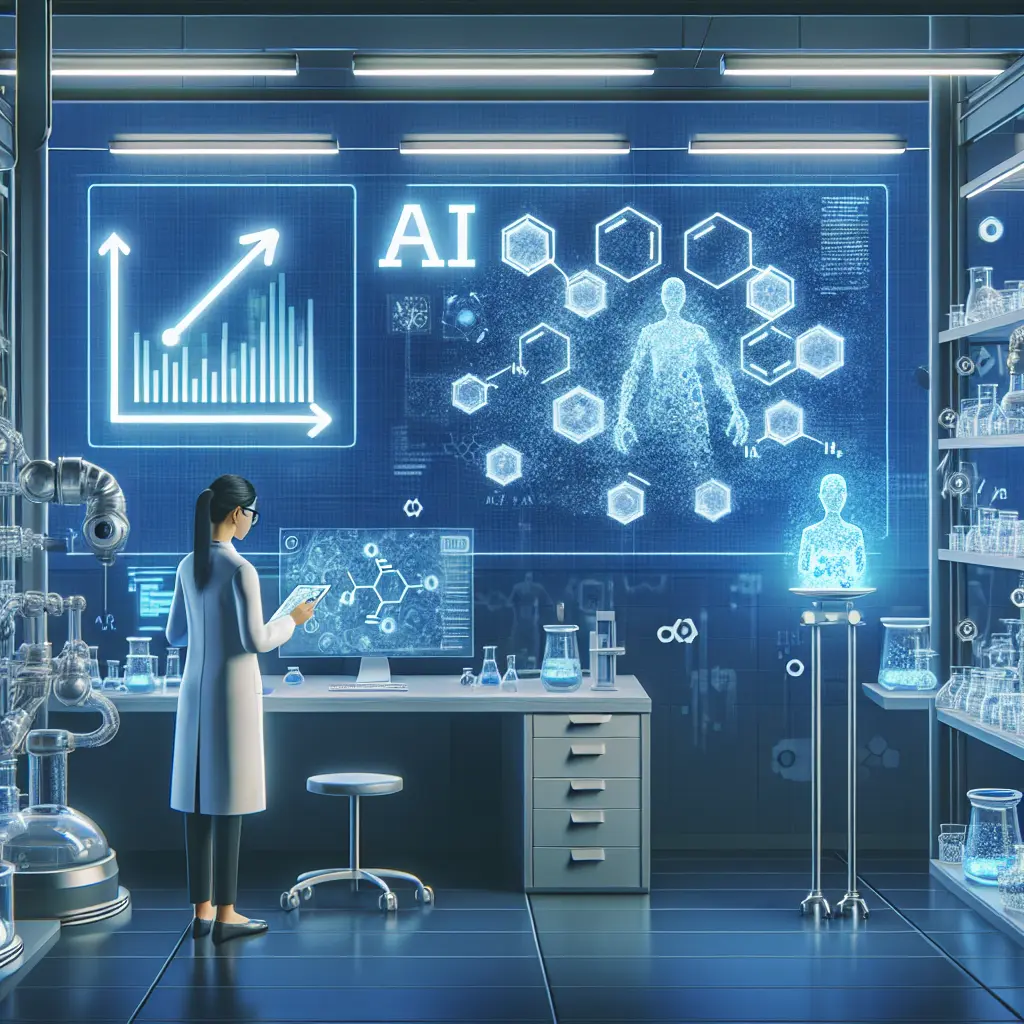
Revolutionizing Healthcare with AI in Drug Discovery
In the rapidly evolving landscape of healthcare, artificial intelligence is emerging as a transformative force, particularly in drug discovery and development. This groundbreaking technology is reshaping the pharmaceutical industry, introducing unparalleled efficiency and innovation in creating new treatments. As AI in drug discovery gains traction, it revolutionizes traditional methodologies, enabling more precise and accelerated processes in AI pharmaceutical research. The integration of AI in healthcare solutions is a beacon of hope for addressing some of the most challenging medical conditions.
In recent years, the integration of AI into healthcare has revolutionized drug discovery, transforming traditional methods into more efficient, cost-effective, and precise processes. As the pharmaceutical industry navigates this digital evolution, AI in drug discovery stands as a beacon of innovation, promising groundbreaking advancements in AI pharmaceutical research and beyond.
The Role of AI in Transforming Drug Discovery
AI-driven drug discovery employs sophisticated algorithms to streamline the identification and development of new therapeutics. These AI-enhanced drug development processes significantly reduce the time and cost associated with bringing new drugs to market. Notably, AI biotech innovations have introduced machine learning algorithms that identify promising drug candidates with unparalleled speed and accuracy.
For example, recent advancements have seen AI drug discovery platforms utilize computational drug discovery approaches to enhance the precision of identifying viable compounds. This shift not only accelerates the research process but also increases the likelihood of success in clinical trials.
Recent Innovations and Their Impact
A particularly significant development is the emergence of specialized AI models tailored for specific domains. These models have shown remarkable proficiency in healthcare and finance tasks, outperforming larger, generalist models. Such targeted AI healthcare solutions underscore the potential of domain-specific AI applications, enhancing the capabilities of healthcare professionals in drug discovery technology.
Moreover, new AI tools are being developed to predict health outcomes with impressive accuracy. A recent innovation involves an AI system that predicts chronic pain risk in cancer patients with 80% accuracy. This tool exemplifies how AI can preemptively address health issues, offering personalized treatment plans that improve patient outcomes.
Addressing Challenges with AI in Drug Discovery
Despite these advancements, challenges remain. Concerns about AI's impact on job markets suggest that Universal Basic Income (UBI) alone may not be a comprehensive solution to job displacement caused by AI technologies. This underscores a broader conversation about balancing technological progress with socioeconomic stability.
In healthcare, the application of AI is also met with caution. Reports suggest that while AI chatbots pass medical exams efficiently, their use in diagnosing patients remains risky. Chatbots may miss crucial information or provide incorrect diagnoses, emphasizing the need for stringent oversight and careful implementation in clinical settings.
The Future of AI-Driven Healthcare Solutions
As we look to the future, the potential for AI in healthcare innovation continues to expand. The establishment of funds like those by Anthropic and Menlo Ventures, with significant investments in AI startups, indicates a strong commitment to fostering novel AI-driven drug discovery applications. This initiative will likely accelerate the development of innovative solutions that could redefine healthcare practices globally.
Additionally, efforts to create more transparent AI models using gaming frameworks demonstrate a move towards greater accountability and understanding of AI processes. This transparency is crucial for gaining public trust and ensuring ethical use of AI in pharmaceuticals.
Conclusion: Embracing AI's Transformative Potential
In conclusion, AI's role in drug discovery and healthcare represents a significant leap forward in medical research. As we embrace these technologies, it's imperative to address potential challenges proactively. By fostering innovation while ensuring ethical practices and socioeconomic considerations, we can harness the full potential of AI-driven drug discovery to transform healthcare delivery.
As professionals and enthusiasts delve deeper into this evolving field, they must stay informed about both the opportunities and challenges presented by AI innovations. By leveraging data-driven insights and maintaining a focus on personalized medicine, we can ensure that AI's transformative power is used to enhance patient outcomes and improve global health standards.
To foster meaningful engagement, I invite you to reflect on how your organization can adapt to these technological changes. What steps can be taken to ensure the benefits of AI are accessible to all? Consider exploring resources such as reputable publications or industry reports for further insights into this evolving field. I encourage you to share your experiences and insights on this transformative journey in healthcare. Your thoughts and perspectives will help shape the future of AI-driven healthcare solutions.
Warm regards,
Rachel Morrison